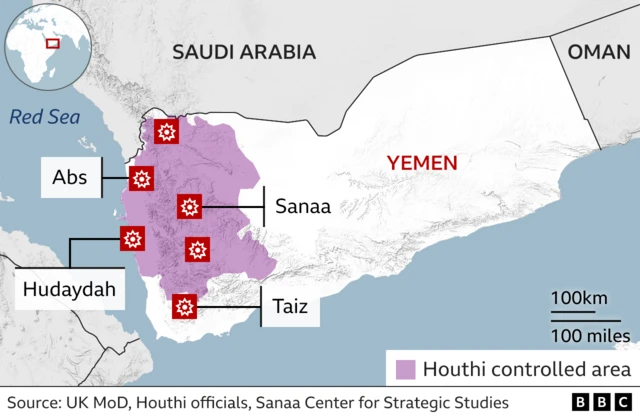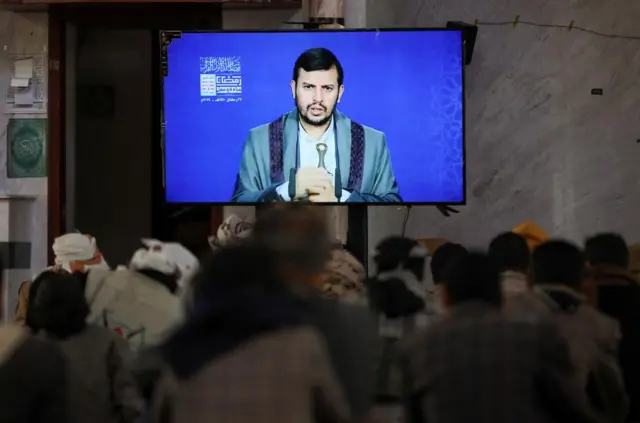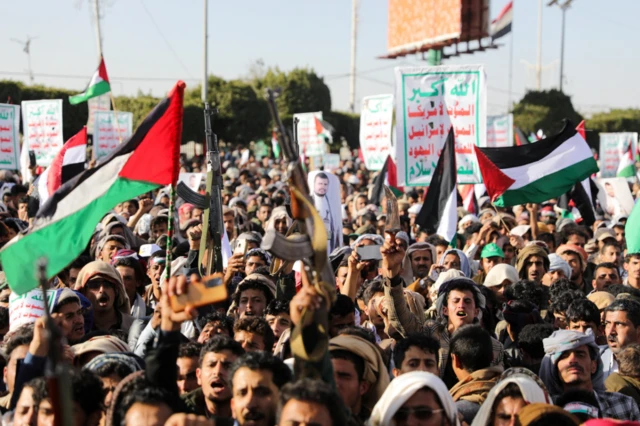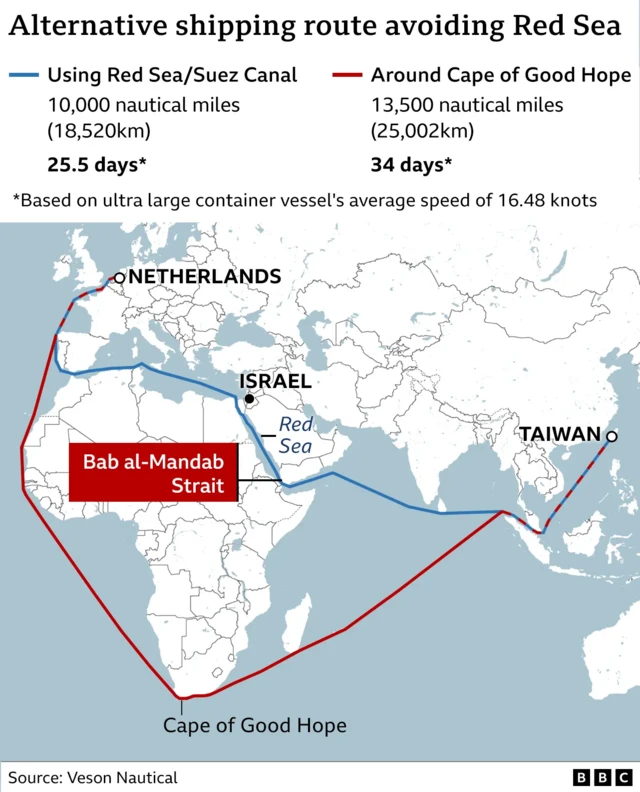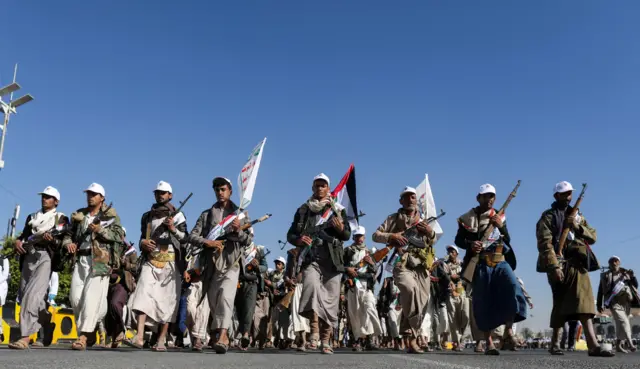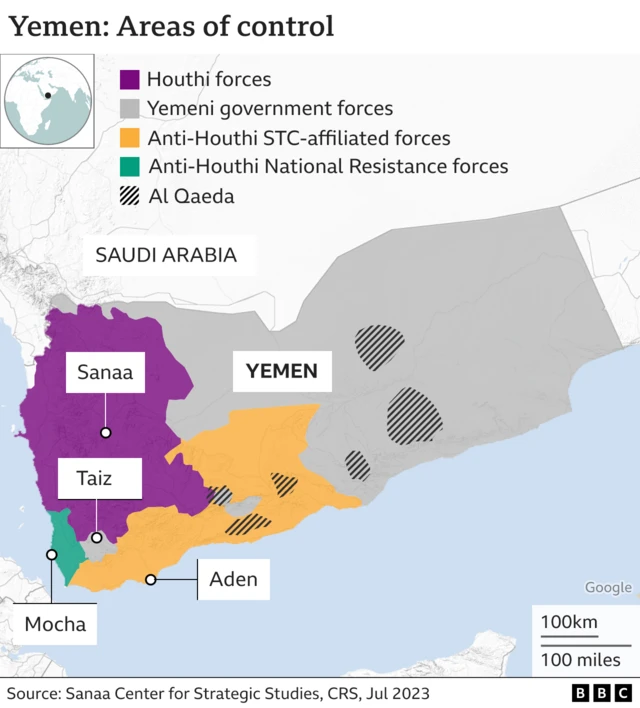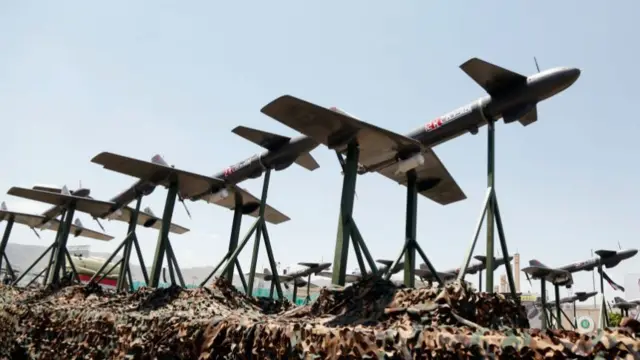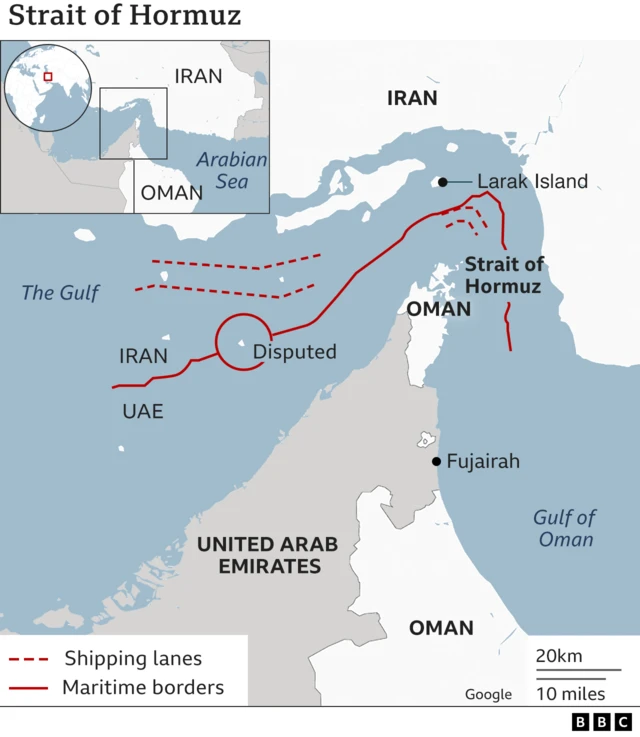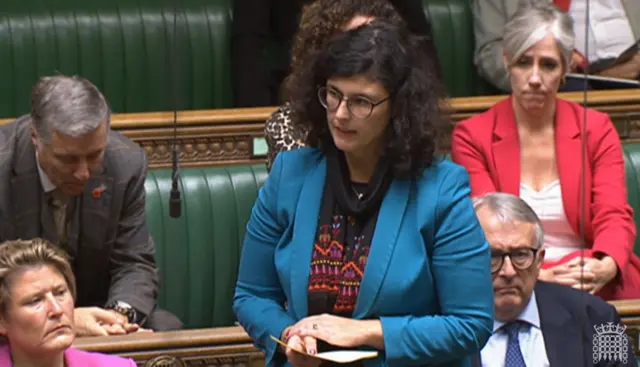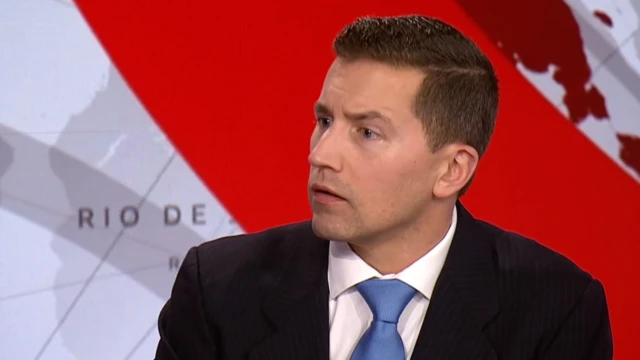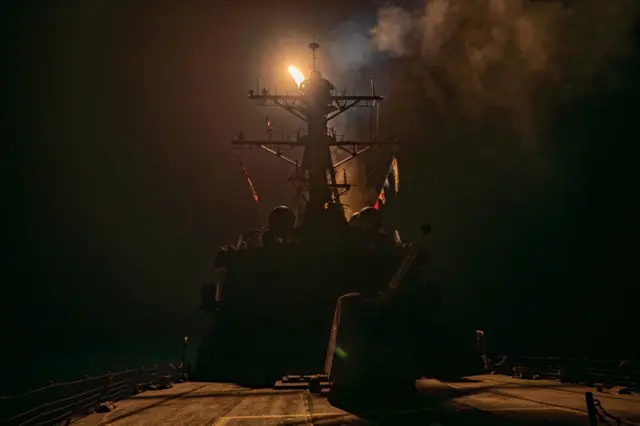Ex-UK diplomat says action won't prompt escalation with Iranpublished at 15:43 GMT 12 January 2024
Lord Peter Ricketts, former UK diplomat and national security adviser, tells the BBC that the US and UK strikes on Houthi targets were a necessary and inevitable attempt to send a "really powerful message" to the rebel group.
"But, equally, being clear they're targeted against the attacks on shipping - it's not a declaration of war against the Houthis more generally," he adds.
Ricketts says he does not believe the action will "escalate into a regional war with Iran", and that the US and UK made calculations to ensure action can be "limited to dealing with the Houthis".
"I don't believe that Iran is looking to get involved in this. I think it suits Iran fine to have their proxies doing this to show that they are leading in the anti-Israel, anti-West stakes as far as the Muslim world is concerned."
Ricketts adds that the "greatest risk of spill over" is "extremist pro-Iranian groups in Iraq and in Syria who may well launch attacks on US bases there".
